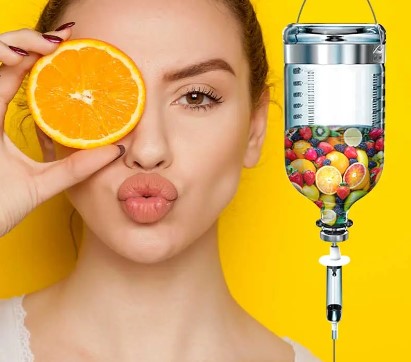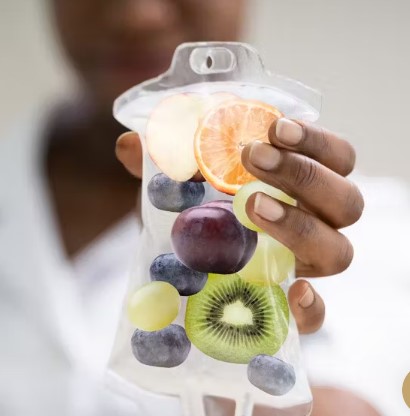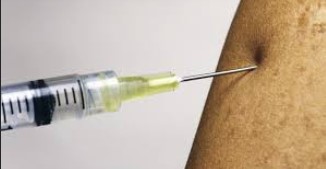
IV Drips or Injections: Which is better?


Vitamins and minerals are essential nutrients that our body needs to function healthily. They are of utmost importance to maintaining our overall health and well-being. They detoxify the body, help support bones, heal wounds, and strengthen the immune system. However, sometimes, due to various reasons our bodies may not get enough nutrients from our diet, leading to chronic health conditions, including fatigue, skin and hair issues, weight gain, autoimmune diseases and heart disease.
In such cases, IV drips or injections can quickly and effectively boost our nutrients levels and promote optimum health. The basic differences between IV (intravenous) drips and injections lies in the absorption rate of the nutrients into the body.
IV Drip Therapy

IV (Intravenous) Drip therapy, or nutrient infusion therapy, involves administering vitamins and minerals directly into the bloodstream intravenously through an IV drip. Vitamin infusion is a widely utilized treatment for severe nutrient deficiencies
It differs from taking vitamins orally as supplements because it bypasses the digestive system. Bypassing digestion makes IV drips the quickest and most efficient way for the body to absorb nutrients.
The effects and results of IV drip therapy can often be seen within hours or a few days after the infusion, depending on the individual and the specific treatment.
People might consider IV drip therapy for various reasons, including:
Treating vitamin deficiencies caused by malabsorption or compromised digestion.
Optimizing nutrient intake.
Providing a quick health boost.
Detoxification and boosting body immunity.
Increasing energy levels in those with chronic fatigue or weakness.
Promoting overall skin, hair health and body wellness.
Aiding recovery from certain medical conditions or after intense physical activity.
The duration and frequency of IV drips can vary depending on the individual's requirements and the treatment plan as directed by a healthcare professional.
IV Drips vs. Injection
Nutrients delivered via IV and injection differ in their mode of administration. In many cases, the delivery method depends on what the condition requires.
IV drips: This involves inserting a needle into a vein before allowing the contents to infuse into the body gradually.
IV Drip basic difference:
Faster absorption of necessary as they are delivered directly into the bloodstream.
The infusion rate can be sped up or slowed down.
Though the time taken is longer, it offers longer-lasting benefits than injection.
The dosage is diluted. Dilution may provide additional benefits, such as enhanced hydration.
Commonly used to treat severe nutrient deficiencies, dehydration, or to support overall wellness.
The cost of IV drip therapy is generally higher than shots, as it requires specialized equipment and monitoring by healthcare professionals.
Nutrient Injections:

This involves the insertion of a needle into a vein, muscle, or fat tissue. This type of infusion is over quickly and may take longer to diffuse into the body.
Injections basic difference:
The vitamins take slightly longer to diffuse through muscle or fat before reaching the bloodstream.
The procedure is over within a few seconds.
Shorter duration of action.
The dosage received may be less.
Healthcare professionals often prefer injections for localized treatment or when IV access is difficult.
Pros of IV Drips & Injections
Provide a higher vitamin dose than oral supplements because they bypass the digestive system.
Be customized to meet individual needs, addressing any deficiencies.
Be used for hydration therapy to rehydrate the body.
Cons of Vitamin IV Drips & Injections
Not appropriate for everyone, especially those with contraindicated medical conditions such as kidney disease.
Unable to replace a healthy diet or lifestyle.
Not regulated by the FDA or other medical authorities. However, there are published guidelines for their safe use.
Efficacy varies based on the formulation.
Before receiving therapy, you should carefully consider these treatments' potential risks and side effects.
Risks Associated with IV Drips or Injections
As with any procedure, there are potential risks associated with IV Drips & Injections. Some risks include infection, allergic reactions, and harm to the veins. Overconsumption of vitamins can easily lead to varying forms of bodily toxicity.
A few examples include:
Vision changes from vitamin A overload: Excessive intake of vitamin A can cause vision concerns or changes in eyesight.
Risk of kidney stones due to excess vitamin C: Consuming high doses of vitamin C increases the risk of developing kidney stones and iron overload.
Loss of extra water-soluble vitamins: After exceeding the required intake, excess water-soluble vitamins (e.g., vitamin C, vitamin B) are eliminated from the body, resulting in potential nutrient loss. Severe cases can lead to refeeding syndrome.
It is essential to consult with a healthcare expert if you encounter any severe or persistent side effects.
Contraindications
IV drip therapy may be unsuitable for those with medical conditions such as:
Kidney/liver disease: Conditions that affect the normal functioning of the kidneys or liver.
Heart failure: A term that describes insufficient heart function and inadequate blood flow as a result.
Blood clotting disorders: Conditions that disrupt the body's normal blood clotting process, leading to excessive bleeding or clot formation.
G6PD deficiency: A genetic condition where the body does not produce enough glucose-6-phosphate dehydrogenase, destroying red blood cells.
Hemochromatosis: An inherited disorder where excessive iron is absorbed and accumulated in the body's organs, especially the liver.
Consult with a healthcare professional to determine safety and receive personalized advice.
For What Issues Are IV Drips or Injections Beneficial?
IV Drip therapy or injections are a safe and effective way to deliver hydration and micronutrients directly into the body to ensure 100% absorption.
These infusions target a wide array of health conditions and symptoms, such as:
Severe Deficiencies: When oral supplements prove insufficient, IV therapy can rapidly boost essential nutrients for conditions like iron deficiency anemia, B12 deficiencies, or some instances of malnutrition.
Malabsorption Issues: Conditions like Crohn's disease or celiac disease can hinder nutrient absorption. IV therapy bypasses this issue, ensuring proper delivery.
Specific Medical Conditions: In some cases, specific medical conditions like hyperemesis gravidarum (severe nausea and vomiting in pregnancy), thyroid conditions, or certain metabolic disorders may benefit from IV therapy as prescribed by a healthcare professional.
Hydration Therapy: Beyond vitamins, IV fluids can rehydrate and replenish electrolytes lost through dehydration, fever, or vomiting, offering rapid recovery.
Cognitive Difficulty: Certain B vitamins in IV drips may actively alleviate brain fog, although this remains scientifically unconfirmed.
Skin, Hair & Nails: IV therapy can improve skin hydration, appearance, and complexion. Replenishes deficient nutrients to strengthen your hair and nails.
Chronic Fatigue: Persistent fatigue caused by nutrient deficiencies or electrolyte imbalances may benefit from IV drips.
Chronic Pain: There is scientific evidence to support the use of vitamin IV/injections for certain pain disorders, such as fibromyalgia.
Migraines and Headaches: IV therapy containing specific minerals and electrolytes may temporarily relieve migraines.
Overall Wellness & Recovery: It is an excellent option for anyone who would like to improve their overall wellness, enhance their athletic performance, or recover faster following a vacation, night out.
This list is not all-encompassing. The use of vitamins, minerals, antioxidants, amino acids, and other natural compounds can be used to promote health, boost energy, and support healthy aging and immunity.
Conclusion
Both IV drips or injections can be a swift and compelling way to boost nutrient levels in the body. They are customizable according to the immediate requirement of a person. Both methods have scientific evidence to support their use for particular medical conditions. Administered by a trained healthcare professional with proper precautions, IV drips or injections can be a beneficial tool in maintaining overall health and well-being.